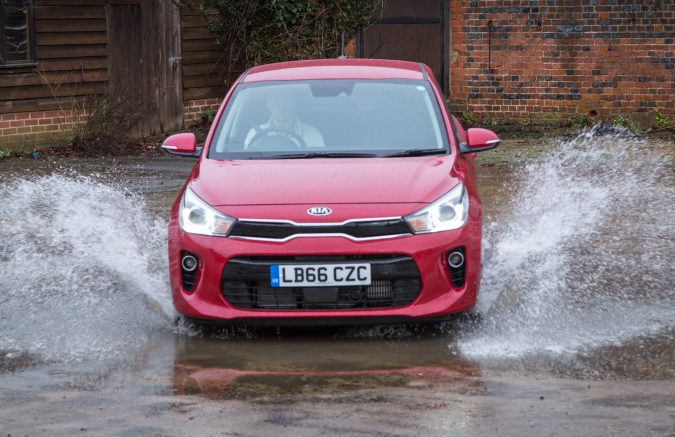Crash courses are short, intensive driving courses that are designed to teach students, regardless of prior experience, how to drive within the space of anything from a week to a month or two. Crash courses are becoming increasingly popular amongst all demographics, and there are a number of different factors affecting their rise.
This has partly been driven by the increasing number of people coming into the UK who, while certified to drive in their home countries, need to apply for a new licence in the UK. Crash courses allow people like this a refresher course, while introducing them to any differences between our system and the one they are used to. Increasingly, we, as a society, are placing a greater level of importance upon completing things quickly and efficiently, a reflection of our fast-paced modern world perhaps.
Crash courses aren’t suitable for everyone; some people just can’t learn things at the pace required, and that’s fine, but crash courses offer a number of benefits and are worth at least considering for most drivers. Concentration and determination are both required from students of crash course driving courses in order to keep up with the rapid pace, but they reward those students in a number of different ways.
Below are five of the main benefits to taking one of these crash courses compared to the traditional, longer term programme.
Higher Success Rate
There is mounting evidence that students of crash courses are more likely to go on to pass their driving test. There are some simple reasons for this. Firstly, because the lessons that comprise a crash course are usually considerably longer than a standard hour-long lesson, students are much less likely to forget things. Even if the information doesn’t stick in the student’s mind the first time, because they will be taking lessons on consecutive days, they will revise everything that they learn and it is usually committed to memory. This makes it more likely to be remembered than it would be as part of a long-term programme.
Because of the rapid-fire nature of crash courses, there is no time in between lessons during which students can become bored, and information is lost unless a conscious effort is made to commit it to memory. Students who drag out their courses the longest are those that are least likely to succeed when it comes to ultimately taking their test.
The likelihood of your success is dependent on the success of the school. When choosing your driving school, a good idea would be to look at their previous pass rates. This is usually featured on the home page and is easy to spot, as you can see on momentumdrivingschool.com who clearly indicate their statistics.
Better Value for Money
Let’s think about the different stages of a standard, one hour long, driving lesson. First, there is a warm-up phase where the student first takes control of the car. During this warm-up phase, the user’s brain begins to recognise that it is performing a task it already knows (unless it’s their first lesson, of course!) and as the task is repeated the learning process begins. Once the brain is ready and in the right state, the student is at their most receptive and their ability to retain information is increased.
After some time, however, the student will reach their limit. After this point, attempting to cram more new information in will lead to diminishing returns and information will be retained poorly.
Most driving lessons terminate after an hour or so which means that they cut short just as the brain is hitting its optimum performance level. By contrast, crash courses last longer and so they take advantage of this period when student learning is at its best. In terms of value for money, this means that you get more out of a crash course because the efficiency of your own learning increases.
Better Information Retention
Students will have a much easier time remembering things for days rather than weeks. When the student is practicing every day, their chances of remembering what they learn are much, much greater than they are for those who need to retain new information for a period of weeks.
If we break the process of learning something new down into stages, we can roughly think of it like this: new information is received, the information goes to the short-term memory, and as the concept is explained the information is then committed to the long-term memory. After the lesson, when the student goes home and is asleep, the brain ‘organises’ itself and processes the day’s events, creating new memories in the process. These memories, when new, are ‘weak’ meaning that they are liable to be forgotten.
When the user encounters the concept the next time, they will recall it from this memory and be able to build upon it. For students on a crash course they encounter the idea the next day and so have a very good chance of remembering it successfully. For those who are having lessons weekly, there is a greater chance of the information being forgotten because of the length of time between it being encountered and subsequently reinforced.
Better Rapport Between Instructor and Student
Because the instructor and student will spend more time together for each lesson, it is much easier for them to build a rapport with the student. Many of the benefits of having a good rapport with someone are things that are not immediately obvious because they involve subtle body language and verbal cues. The net effect of these subtle changes to our interactions is, however, enough to have a positive impact on our ability to retain information and to receive new ideas.
Another positive effect of having a good rapport between instructor and student is that it can drastically improve a student’s confidence, again because of unconscious clues they will pick up from their instructor.
Rapidly Refresh and Build On Previous Experience
Many people have quite a lot of experience driving, despite not holding a licence. There are a number of reasons why this might be the case. Those who have lived in another country might hold a driving licence which is not valid in the UK, some people grow up with access to private land suitable for driving on and so may be familiar with operating a car, even if they have no experience on the road, and a lot of people start learning to drive but, for whatever reason, don’t ever obtain a licence.
Wherever one’s experience may come from, it is likely that a crash course will bring those memories back, even if it feels like they are irretrievably buried in the back of one’s mind. In this regard, crash courses act as excellent refresher courses and are a perfect way of spending the week or so before one’s final driving exam.
Conclusion
Crash courses have proven themselves effective at filling a gap in the market. While the nature of a crash course – fast-paced and intensive – isn’t well suited to everybody’s learning style, for many people they are perfect, and if you find yourself struggling with conventional lessons they are worth considering.
Learning to drive is something of a rite of passage for most young people, but it is also something that an increasing number of people are coming to later in life, some with experience of driving in their youth. Regardless of how old you are, how experienced you are, or how apprehensive you might feel about taking your first metaphorical steps in driving, a crash course may make the journey easier for you.




